 Most property owners understand the importance of protecting their property with adequate insurance. If you're looking for insurance to protect the home you and your family live in, homeowners insurance is probably the answer.
Most property owners understand the importance of protecting their property with adequate insurance. If you're looking for insurance to protect the home you and your family live in, homeowners insurance is probably the answer.
However, if you rent out a room in your house, have a vacation home you rent out when you aren't using it, or rent your home out occasionally (for special events), homeowners insurance may not be adequate. And if you own a rental property with tenants, homeowner insurance is definitely not enough.
Historical data shows that tenant-occupied properties pose more risk than owner-occupied properties. Therefore, if you have homeowners insurance on a property occupied by tenants and need to make a claim, it probably won't be covered, making all those insurance premiums a waste of money. It isn't enough just to have insurance; you need to have the right insurance.
One of the experienced insurance agents at American Insuring Group can help ensure that you have the right insurance to protect your property, but here is some basic information to consider.
The Difference Between Landlord and Homeowners Insurance
- Occupancy
Who lives on the property? This is the most significant difference between landlord and homeowners insurance. As we mentioned, homeowners insurance is probably your best bet if you and your family live in the home. However, if you rent an investment property out to tenants, you should have landlord insurance. Renting out a room or occasionally renting out the property is more of a gray area. Sometimes homeowners insurance will suffice, sometimes your homeowner's coverage may need to be adjusted, and sometimes the only thing to protect your property is landlord insurance. - Property Coverage
Typically, both homeowners and landlord insurance cover damages to the structure caused by covered perils, but coverage for personal property is different. Homeowner insurance typically covers all personal property (furniture, jewelry, household goods, etc.), whereas landlord insurance does not cover the tenant's personal property. Furthermore, if the property owner has furniture, appliances, landscaping equipment, etc., in the rental property, they need to consider that when choosing their landlord insurance policy. - Pricing
Because tenants pose more risk, landlord insurance typically costs about 25% more than the standard homeowner's insurance. - Loss of Use vs. Loss of Rent
Both homeowners and landlord insurance provide coverage when a property is damaged by a covered peril, rendered uninhabitable, and under repair. However, homeowners insurance provides coverage for loss of use (reimbursement for living expenses, such as accommodation and meals), and depending on your policy, landlord insurance covers loss of rent (rental income reimbursements to help cover ongoing expenses)
Types of Landlord Insurance
There are three types of Landlord Insurance: DP-1, DP-2, and DP-3. DP-1 offers the most essential coverage, DP-3 provides the most comprehensive coverage, and DP-2 falls in between.
- DP-1 offers the most affordable and least comprehensive coverage. It only covers perils named explicitly on the policy - fire, lightning, smoke, explosions, vehicles, aircraft, riots or civil commotion, volcanic explosions, windstorms, and hailstorms. DP-1 pays out the actual cash value (ACV) of the lost property. In other words, it determines your payout based on the original cost minus depreciation. That means you may not receive enough money to repair or replace an item at the current cost.
- DP-2 covers only perils specifically named on the policy, but it does include more perils, such as burglary, collapse, the weight of snow and ice, etc., than DP-1 policies. Unlike DP-1, DP-2 policies pay claims based on replacement cost value (RCV), which pays for repairs or replacements based on current costs.
- DP-3 is the most expensive option but offers the most protection. It covers all perils unless the peril is explicitly excluded in the policy. DP-3 typically pays out claims based on the RCV. It also covers loss of use, liability, and personal property you have on the property.
Do You Have the Right Insurance for Your Property? We Can Help!
The independent insurance agents at American Insuring Group can ensure that you have the right insurance for your specific needs. Then, they carefully compare rates and coverage from competing insurance companies to find you the best price!
Call us today at (800) 947-1270 or (610) 775-3848, or connect with us online.



 How to Choose the Right Landlord Insurance
How to Choose the Right Landlord Insurance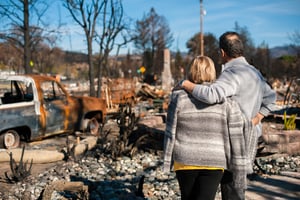 Recent disasters both near, like the flooding in Berks County, and far, like the destructive fire at the Notre Dame Cathedral, has many homeowners wondering whether they have enough
Recent disasters both near, like the flooding in Berks County, and far, like the destructive fire at the Notre Dame Cathedral, has many homeowners wondering whether they have enough 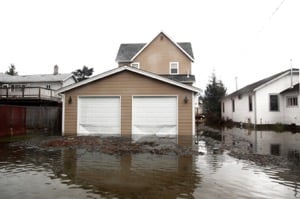 We’ve all seen the devastation Hurricane Harvey has caused in Houston. People being rescued by boat. People without power or safe drinking water. Homes that were flooded or completely destroyed. It is heartbreaking. And so many without a flood insurance as opposed to a standard
We’ve all seen the devastation Hurricane Harvey has caused in Houston. People being rescued by boat. People without power or safe drinking water. Homes that were flooded or completely destroyed. It is heartbreaking. And so many without a flood insurance as opposed to a standard 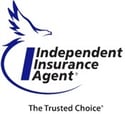 The goal at American Insuring Group is to make our customers bulletproof regarding all their insurance protection, including flood insurance.
The goal at American Insuring Group is to make our customers bulletproof regarding all their insurance protection, including flood insurance.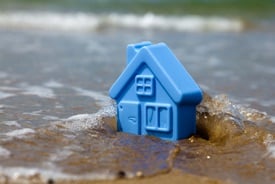 No one wants to pay more for business or
No one wants to pay more for business or  American Insuring Group can help you determine if you flood insurance is right for your home or business.
American Insuring Group can help you determine if you flood insurance is right for your home or business.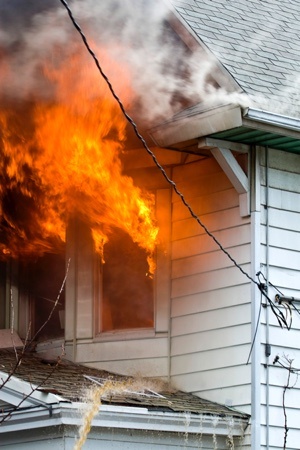 When people think of
When people think of  Our homes are becoming “smarter”! That's a good thing, right? Yes, you proably have
Our homes are becoming “smarter”! That's a good thing, right? Yes, you proably have  If you own a house, you have
If you own a house, you have  What you have read here is Home Insurance 101. To ensure that you are adequately covered, talk to one of our experts at American Insuring Group. We will help you acquire a homeowner's policy that has the appropriate coverage for your situation at a great price.
What you have read here is Home Insurance 101. To ensure that you are adequately covered, talk to one of our experts at American Insuring Group. We will help you acquire a homeowner's policy that has the appropriate coverage for your situation at a great price. 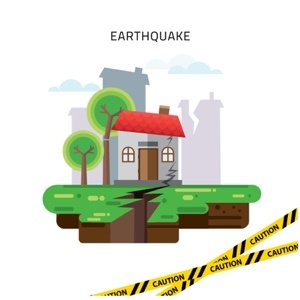 As you listen to the news about the devastating fires in Tennessee, tornado outbreaks in the Midwest, or destructive hurricanes pounding the coast of Florida, you may feel safe and sound here in Pennsylvania, especially if you have
As you listen to the news about the devastating fires in Tennessee, tornado outbreaks in the Midwest, or destructive hurricanes pounding the coast of Florida, you may feel safe and sound here in Pennsylvania, especially if you have 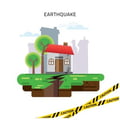
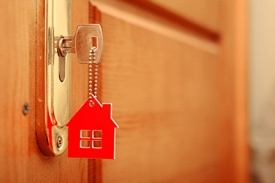 On the surface, home sharing looks like a simple idea. You, the homeowner, offer accommodations to a guest--a home sharer--in exchange for an agreed-upon fee and, in some cases, help with household tasks.
On the surface, home sharing looks like a simple idea. You, the homeowner, offer accommodations to a guest--a home sharer--in exchange for an agreed-upon fee and, in some cases, help with household tasks. Before you commit to becoming a host, check with American Insuring Group to understand what your existing homeowner’s policy covers and what exclusions might apply. Then you can purchase a policy that closes all of the gaps.
Before you commit to becoming a host, check with American Insuring Group to understand what your existing homeowner’s policy covers and what exclusions might apply. Then you can purchase a policy that closes all of the gaps.



